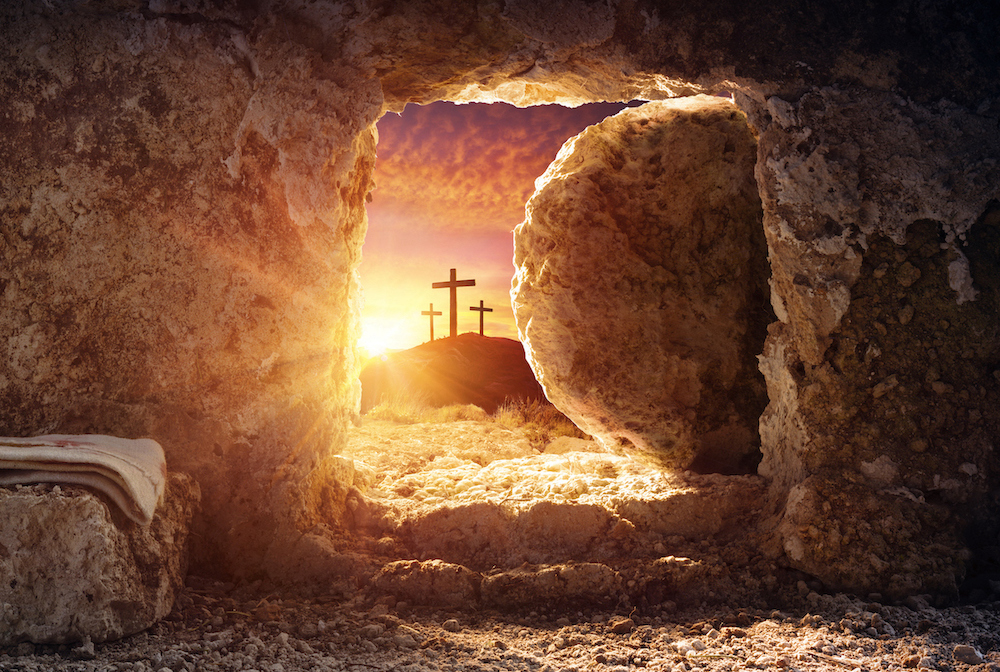Over this past year, there are several things about which the pandemic has made us aware — the most important of which were the preciousness of human life, the beauty and treasure of relationships and the imperative to live each day as though it were our last.
For many of us, the pandemic has been an extended Lent. It was as though that penitential season of 2020 never ended. The effects of COVID-19, as well as the violence in our cities and the incivility that permeated politics and culture, were painful, often rendering us uncertain and filled with doubt about the present and the future.
The pandemic made us aware in a vivid and challenging way of our human frailty and of the vulnerability we often experience in this life. This weakened, broken condition makes us susceptible to suffering.
We took the measures necessary to respond to the pandemic, e.g., wearing masks, social distancing, frequent hand washing, and we prayed for a vaccine that would stem the impact of COVID and put an end to the death toll.
If the pandemic was synonymous with the experience of Lent, then the vaccine can be seen as analogous with our experience of the Paschal Mystery and Easter — the season of new life.
As human beings, we are born into a state of alienation from God. The root of this alienation is original sin — the original fracture that exists between humans and God because of the pride of our first parents. That is where the brokenness of the human condition began, and all that affects us when it comes to the suffering and death that resulted from it.
God does not want to keep us in that situation of isolation; he wants to free us from it. The foundation of his remedy for the brokenness of original sin is the Paschal Mystery. This remedy is our Lord God’s embrace of humanity, taking on human flesh, the fullness of humanity, except for sin. He embraces suffering and death. By embracing suffering and death, he is obedient to the Father, atones for our sins and is victorious over them by making the passage through death into resurrected life.
How do we enter into and experience that new life? God provides for us with another part of his remedy. We don’t have to endure the same scourging, agony, rejection, crucifixion and death that he did. Rather, he gives us the sacraments of initiation. Baptism, confirmation and Eucharist give us full and effective participation in the Paschal Mystery. In them we join with Christ in his death and resurrection. We die and rise to new life in those sacraments. They are God’s remedy; they are our spiritual vaccine over sin and death.
That remedy, including frequent, devout reception of the sacraments of reconciliation and the Eucharist, allows us to build up our resistance to the effects of sin. Through the grace we receive in those sacraments, we are united with our Lord in overcoming sin and death.
We are also asked, in tangible and effective ways, to share in the Paschal Mystery by carrying our own crosses. Rather than a horrific crucifixion, it often takes the form in us of sacrifice, putting the needs of others ahead of ours, sharing our time, talent and goods with those who need them, being a compassionate listener for those who have no one to hear them.
Holy Week is our immersion in the Paschal Mystery. As we begin with Jesus’ triumphal entry into Jerusalem on Passion Sunday, our whole Church reflects on the Passion. The Sacred Triduum is our passage with the Lord in his suffering, death and resurrection on Easter Sunday.
Our entire Church is invited and encouraged to receive the grace to conquer sin and death through reception of the sacraments. These are an integral part of God’s remedy; they open us up to optimism, joy and a future that is not burdened by the effects of sin and death. Instead of being beaten by sin and death, we pass through them, are lifted from them and, with Christ, triumph over them!

